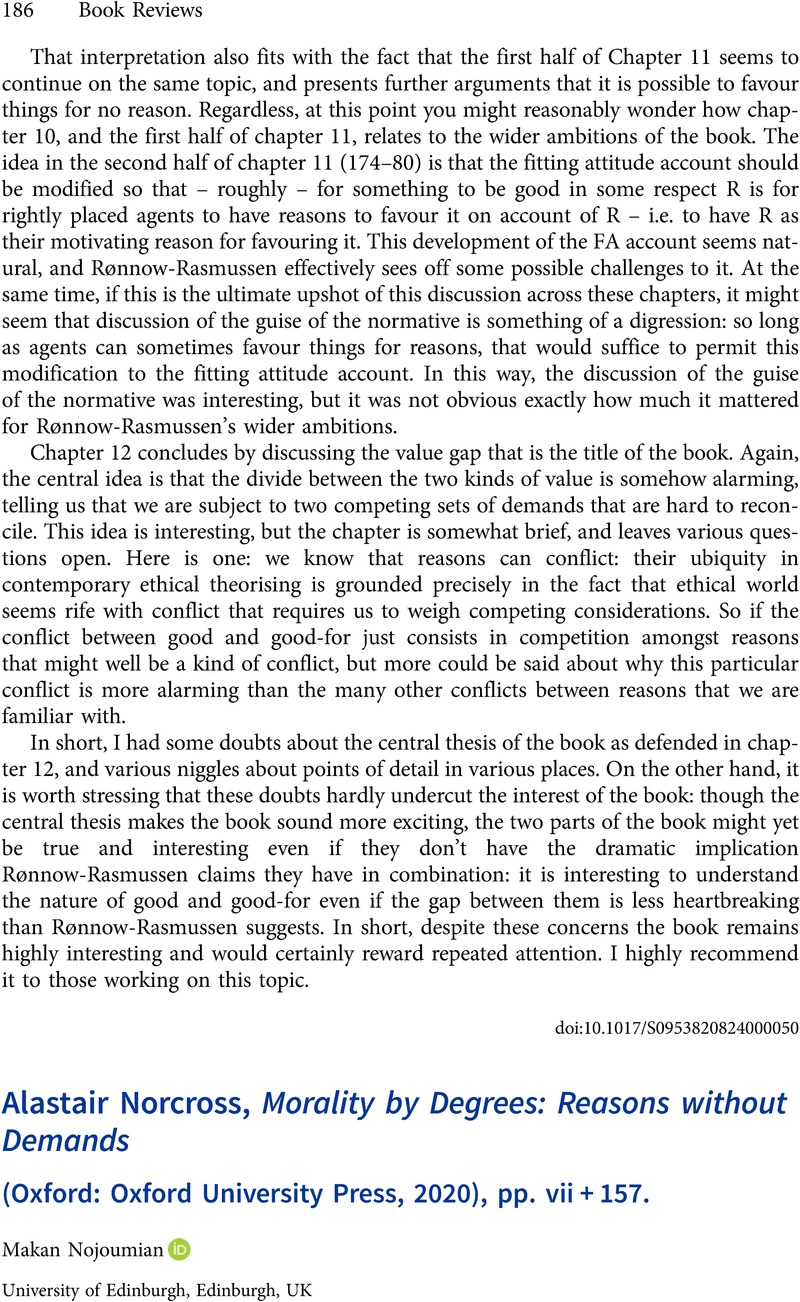No CrossRef data available.
Alastair Norcross, Morality by Degrees: Reasons without Demands (Oxford: Oxford University Press, 2020), pp. vii + 157.
Review products
Alastair Norcross, Morality by Degrees: Reasons without Demands (Oxford: Oxford University Press, 2020), pp. vii + 157.
Published online by Cambridge University Press: 01 February 2024
Abstract
An abstract is not available for this content so a preview has been provided. Please use the Get access link above for information on how to access this content.

Information
- Type
- Book Reviews
- Information
- Copyright
- Copyright © The Author(s), 2024. Published by Cambridge University Press


